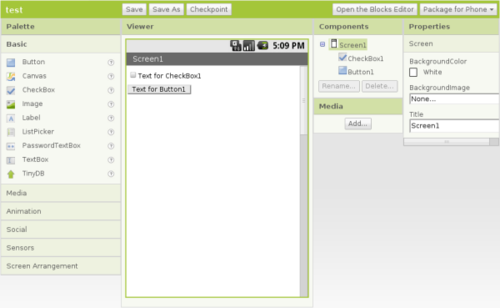A little debate between me and my girlfriend is being played out throughout the country: iPhone vs. Android. Six months ago, the debate would have been one-sided — iPhone of course. Sure — you were stuck with AT&T, and sure there was only one phone using the iPhone operating system (the iPhone), but all told, the iPhone simply had it all.
But something happened after that. First of all, Android came out with its 2.2 operating system, which was far superior to the older system. Older Android phones got updated with the new OS (for free — you didn't have to buy a new phone), and suddenly people found they had, for example, a navigation system on their phone which exceed the standalone GPS systems like Garmin and TomTom. The voice recognition system was vastly improved. And so on.
Meanwhile, Apple released its iPhone 4.0, a buggy little device which — even when the antennae worked — still didn't offer what Android phones offered (including the ability to turn your phone into a portable Wifi for your laptop). And many trendy tech-sperts starting making the migration from iPhone to Android, seeing Android as the phone of the future.
The reason, they'll tell you, for the migration is because Android plays nice with others. It is an "open system". Apple continues to keep a closed business model, and is starting to pay for it. Remember when iTunes was only compatible with iPods, rather than other music players? That worked well for Apple for a while, but you'll notice that's not the case anymore, and Apple was forced to abandon its DRM system.
Apple is trying to do the same thing with iPhones, but the problem is that the cyberworld isn't all Apple stuff. Take internet browsers. Many websites have Flash features. Apple doesn't like Adobe (the makers of Flash), so they don't make iPhones Flash-compatible. The list goes on.
The strength in Apple was all the apps. And it was impressive. But because the Android system was open-ended, developers were quick to create Android apps, and now any app for the iPhone is available on Android. In fact, there are more Android apps now, chipping away further at iPhone appeal.
And now the Android ante has been upped again.
Because now, thanks to Google (the driving force behind Android), even non-developers (i.e., people like me) can create their own apps. No programming knowledge required. This is good for small companies and non-profits who would like smartphone presence, but can't hire a geek to come up with an app for their company. Plus, you don't have to jump through Apple's hoops, and get Apple approval.
The App Inventor is currently in beta.


